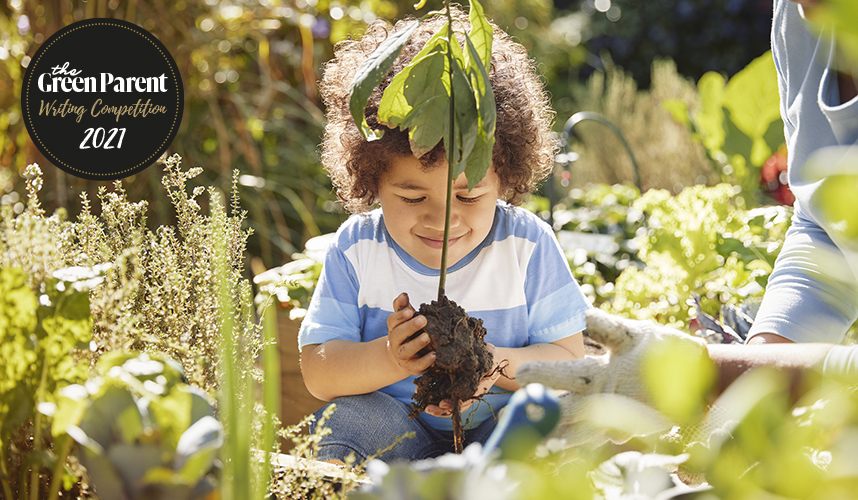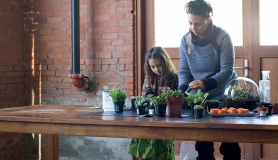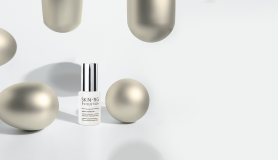Some of our greatest thinkers have written about the journey of discovering one’s true self, one’s meaning or purpose. These theories can be seen as rites of passage and can involve huge cognitive and emotional changes.
Jung determines Individuation as the process of integrating the conscious and the unconscious to gain self-actualisation and a fully formed whole. Dąbrowski’s theory of positive disintegration views tension and anxiety as essential stimuli for growth. He believed crises create opportunities for us to re-evaluate our lives and progress to advanced stages of psychological development.
Entering into motherhood provides a hefty amount of stimulus and, for me, this new life phase has provided a huge opportunity for growth and a chance to make significant steps towards understanding myself.
RITES OF PASSAGE
The spiritual development that goes hand in hand with these psychological rites of passage are evident in the world of stories and mythology universally. In the early twentieth century Arnold van Gennep explored rites of passage ceremonies in small-scale societies and expressed how those rituals marking or celebrating individual or collective passages through the cycle of life or of nature exist in every culture. He explained that these ceremonial initiations share a three-fold sequential structure:
1. Preliminal rites (separation): A metaphorical “death” or separation from a current existence or routine.
2. Liminal rites (transition): When a considerable transformation happens through a prescribed sequence or passing through a threshold marking a boundary between two places, under the guidance of an initiated elder.
(The term ‘liminality’ meaning “a threshold” relates to the disorientation the initiate experiences as they have let go of their pre-ritual status but not yet achieved the status they will hold when the rite is complete.)
3. Postliminal rites (incorporation): The initiand is re-incorporated into society with their new identity or status.
Sadly, honouring these initiatory rites fell out of favour in our western society a long time ago and we are therefore left uncontained, desperately trying to find closure for our past seasons and often, mistakenly fearing the next. Something needs to die, decay or metamorphosise to be reborn, yet culturally, death is often seen as something to be feared and therefore chapters are often not closed effectively.
Because we have lost our connection to our ceremonial initiations, we lack much of the wisdom and guidance our ancestors benefitted from. This in turn means initiated elders are sparse and we have to make a determined effort to find the right supervision.
In A Branch from the Lightening Tree the mythologist Martin Shaw explains how the real risk to initiation isn’t the threshold, but the return,
“…without the return, the alchemy itself is half undone […] The assumption in ancient society was that you had a supportive environment to return to; that many hands would ruffle your head, warm tears would splash your cloak as you danced into the next stage of your life. This assumption has lost all ground in western culture. With this loss we find the potential initiate in a stage of unparalleled vulnerability.” (2011, p6)
Initially unknowingly, I have been gathering a circle of initiated people to guide me through my own individuation — my descent into myself. Ruth Cato, the intuitive and insightful shamanic healer is one such person who helped steer me towards understanding my own cycles. She introduced me to the expanded Four Phase Feminine Way of maiden, mother, maga, crone emerging from the Triple Goddess through her empowering Sacred Cycles workshop and to the work of Jane Hardwicke Collings, who explains that when the neocortex is complete, around the ages of 25–27, many women are entering the Mother phase. In Jane’s article ‘Honoring Rites of Passage in A Woman’s Life’ she states,
“With each life season there is a rite of passage or initiation that marks the end of one season, and the beginning of the next.”
Life events such as childbirth have always been rites of passage, yet modern childbirth exemplifies this uncontained initiation. How often do we see mothers geared up for birth, only to be let down by wider society once the welcoming party has left? That feeling of ‘vulnerability’ Martin Shaw discusses is palpable.
Maternity can often be seen to follow van Gennep’s three-fold sequence, but what happens when a woman enters the new season of motherhood, but gets caught in the liminal phase, without passing through the threshold, without the gift in the form of a new baby to confirm her new status in that phase, her new identity as a mother?
Is this the underworld a heroine journeys down to in a Vision Quest, as Joseph Campbell describes in The Hero with a Thousand Faces? Is the deep insight received in the shadowlands what she must bring back and share with her community? Maybe that is exactly what this piece is.
At 27, in concurrence with my neocortex, I become pregnant for the first time. After a huge amount of heartache and grief, I agreed to a termination as my then partner wasn’t able to commit, and I therefore believed there wouldn’t be a suitably nourishing environment to raise a child.
Although childbirth is usually considered the initiation into the season of motherhood, I believe that this initial joy of new life and subsequent loss was mine. From this point, I believe I began the inner seasonal cycle of my Mother phase, starting with my Spring of Motherhood — albeit without a child. I was stuck in the liminal.
A new seed had formed, but not been able to grow. Although I mourned this loss and my family and close friends wholeheartedly supported me, I believe the stigmatism around abortion and my naïve belief — driven by the capitalist culture at large — that I should get my head down and work, left me with an unfulfilled purpose and a deep, resounding sadness.
Spring is the season of new life, of anticipation. It is also a vulnerable time when uncertainty can cause fear and anxiety. This is where I resided until a few years, a new relationship and two miscarriages later, I had my two-day initiation into my Summer of Motherhood through the birth of my daughter. This experience felt like a true rite of passage, but with hindsight I believe that without closing the previous turbulent Spring chapter properly and not having the ‘container’ of an initiated collective, I unknowingly left myself wide open to anxiety and distress.
My Summer phase of Motherhood was, as it is for so many, an intense rollercoaster of emotions. My partner and mother thankfully created a safe haven for the first weeks after the birth. But following that, due to my uninitiated naivety, I wasn’t aware of the fourth trimester and the isolation and turbulence of the subsequent months was exaggerated by moving to a new county, for my partner’s job. This huge logistical change, along with physical trauma from a long, hospitalised, forceps birth catapulted me into a sea of anxiety, for which I sought psychological help through CBT. This was a huge period of transformation, a crisis moment that Dąbrowski might call stimuli for growth. It certainly didn’t feel positive at the time!
Martin Shaw talks about the idea of un-held or unguided initiation in relation to the Dionysian tone of the 1960s where “hundreds of thousands of people poured down the hole of initiatory experience without support of elders or much understanding of where they were going. Many returned, some didn’t” (A Branch from the Lightening Tree, p17). This to me corresponds with entering into mother or parenthood. So many women are left with unresolved trauma, that, if left unhealed can have detrimental effects on their own and their family’s wellbeing. This should not be seen as another stick for mothers to beat themselves with. It should be better acknowledged by society and not brushed under the carpet with stiff upper lips.
Fortunately, at this time I made a beautiful friend, Anda, who unwittingly guided me through that first year. Due to her innate wisdom, she gave me the acknowledgement that the choices I was making, that didn’t necessarily align with the mainstream, punitive view that children should earn love conditionally and obey orders without question, were not only acceptable, but positive.
This unsettled time shook me up and although difficult, it created a rupture that enabled me to see that to create a non-coercive, respectful, consent-based space for my children to thrive in and not lose their autonomy, I would need to unlearn a whole lot of dogma and make significant changes to my own wellbeing.
When I became pregnant with my son, I took this opportunity to heal some of the emotional trauma I held onto from my daughter’s birth. My partner and I did ‘Birthing Again’ preparation sessions and ‘Birth Story Listening’ with Su Barber at Restoring Motherhood, which was incredibly nurturing and supportive for both of us. Su introduced me to Pam England’s ‘Birthing from Within’ which gave me a whole new perspective and appreciation for my own body. A few weeks after Su held a beautiful Mother Blessing for me at my home, with friends and family. I had a wonderfully empowering and magical birth in that same comfortable space…in the corner of my sofa!
My son’s birth was such a different experience, I felt a new sense of initiation. This time I felt held and contained, whereas for my daughter’s previous hospitalised birth, sadly, I did not.
The pitfalls of nuclear family life quickly became a reality but, fortunately, this time I had a better support network. However, I knew there was a lot more work to be done to really thrive and be able to create a supportive vessel that would enable me to live in accordance with my values.
Prior to my son’s birth I had come across the work of Sophie Christophy and asked her up to Shropshire to give her Changemakers workshop. This was a watershed moment! This was when the first few leaves began to fall, marking the ‘preliminal rites’ or crossing into my Autumn phase of Motherhood.
Among other things, Sophie Christophy is a feminist and children’s rights activist, deconstructing patriarchy from childhood socialisation in education. Her work strives for the emergence of a consent and rights-based social and environmental paradigm. The Changemakers workshop looks at the history of patriarchy and envisions a better way forward, rooted in a consent and human rights-based culture. This was music for my soul. I learnt so much and it gave me the thirst for more. I began my journey of un-learning and re-learning. I later joined her Consent Based Education Course, which created a supportive community to understand how learning can look when we move beyond authoritarianism and patriarchy, what consent really means and how to live together in more respectful, socially just ways that acknowledge the personhood and agency of children.
THE SEASON OF ALCHEMY
Autumn is the season of alchemy. This is where the work gets done after the nourishment of the summer. It is time to harvest the fruits; time to turn the base metals into gold. Emerging from the early years of motherhood and aligning with Gentle and Aware parenting principles, I was now beginning my deeper dive into this work of changemaking.
Possibly due in part to the intensities surrounding my first two inner phases of Motherhood, along with issues surrounding my own Maidenhood, my children have been shining a very strong light onto me, emphasising my darkest shadows. They are my most challenging guides, asking me to delve into that shadow and face my deeply buried limiting beliefs and ingrained inner critic. To enable me to hold space for their emotions and intensities, I knew I had to start doing a whole lot of unpacking and unlearning.
My transition into this season of abundance, action, gathering knowledge and integration began at the point my daughter didn’t start school and we committed to provide an alternative, consent-based, self-directed learning environment. Going against the current is never easy and this decision was not made without huge consideration and research.
To continue to align with our values, there is still so much work to be done as parents. This season is about pulling out the thorns and meeting one’s own unmet childhood needs.
I joined Lucy AitkenRead’s wonderfully nourishing and informative Disco (Latin for learn) unschooling community, which is hugely supporting my own unravelling and de-schooling. Under Lucy’s encouraging and empathetic guidance, this international community assists and holds each other through the emotional and practical aspects of self-directed learning.
Also, by working with a Jungian Analyst I am slowly beginning to bring unconscious parts of my psyche that have held me back into a more balanced relationship with my conscious awareness. This is enabling me to move away from decisions and reactions based on long held fears. In terms of parenting alchemy, this is pure gold! It’s certainly not a fast process and I am learning that this Autumn phase is a long one.
Looking ahead to my Winter phase of Motherhood, my duty to myself and my children is to truly honour this season. Once ready, I will commit to restorative, radical, rebellious rest! Rest that goes against the capitalist stronghold of ‘value in productivity’.
An initiatory ritual I envisage for the transition from Autumn into my Winter of Motherhood is a Closing the Bones ceremony. Usually seen as a postpartum ritual, originating in South America, it can also be used to close other chapters. This can be intense, energetic work that allows for deep processing and profound healing, by creating a cocoon-like container from a woven wrap for the process of transformation. My hope is that this wrapping and unwrapping will aid me in re-embodying myself after such a physically, cognitively, and emotionally powerful stage of life.
Looking back, a very important consideration is that I feel so many women, like myself, don’t fully experience the Winter of Maidenhood, before or during a first pregnancy. I feel that if honouring the end of that inner phase (re)became a rite of passage in our culture, so many more mothers would have the strength to move into their Spring of Motherhood with more ease and confidence. Closing that chapter, celebrating, but also grieving for what has passed can be so cathartic. It could create the space to move into the much-required deep rest, that would set a precedent for the following cycles and help create a stronger container of initiated elders that will hold and guide our children when they are ready to transition through their own seasons of parenting.
Get more Emily!
References
Arnold van Gennep, (1977) The Rites of Passage
Martin Shaw (2011), A Branch from the Lightening Tree
Ruth Cato, Sacred Cycles Course
Jane Hardwicke Collings (2013), ‘Honoring Rites of Passage in a Woman’s Life’
Joseph Campbell (1949), The Hero with a Thousand Faces
Su Barber, Restoring Motherhood
http://www.restoringmotherhood.co.uk
Pam England (1998), Birthing from Within
Sophie Christophy
Lucy AitkenRead, Disco Circle







